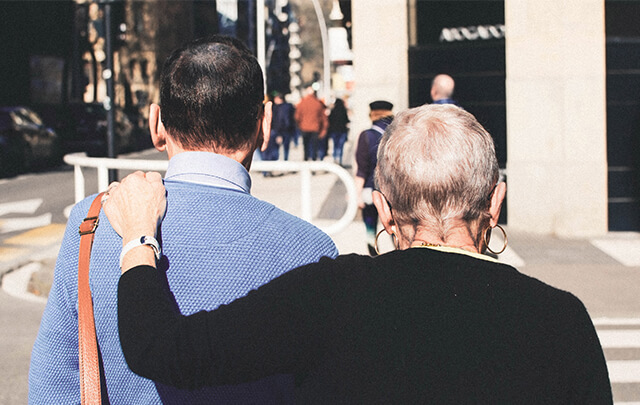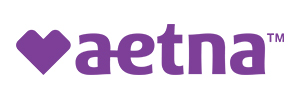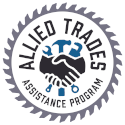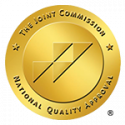Approximately 9.1 percent of Americans have successfully gotten clean and sober. Are you hoping that your loved one can become part of this group?
It’s very difficult watching someone you love and care for struggle with addiction, and you’re likely willing to do anything to help them. If you want to encourage them to seek help or enter a treatment program, though, it’s important to understand that certain tactics will be more effective than others.
Read on to learn some effective strategies that will help you get an addict who doesn’t want to go into drug treatment.

Understand Enabling
Learning how to stop enabling is one of the most important things you can do if you want to effectively help a loved one dealing with drug abuse or alcohol abuse. Once you understand what enabling is, you (as well as others who are interested in helping your loved one recover) can stop doing it.
The term “enabling” refers to a pattern of behavior among friends and family members of an addicted person (as well as anyone who is making poor choices that harm themselves or others). Anybody can be an enabler — a spouse or romantic partner, a parent, a sibling, etc.
What Does an Enabler Do?
Enablers love the person who is struggling with addiction, but they also regularly find themselves taking responsibility for that person’s actions. By not letting that person take accountability for themselves, they encourage them to continue acting out. If the addict knows that someone will always be there to clean up after them, they’re not going to be motivated to seek help and work toward sobriety.
There are lots of ways that enabling can show up. Here are some common examples among family and friends of addicts:
- Ignoring dangerous or harmful behavior
- Lying to cover up the addict’s behavior
- Blaming others for the addict’s behavior
Enablers often have difficulty expressing their true emotions, too. They may worry about upsetting the addict or others in their life, so they pretend that everything is okay when it really isn’t.

Communicate the Right Way
To stop enabling your loved one and help them to help themselves, you need to learn how to communicate with them effectively. Before you start seeking out drug & alcohol treatment centers or other alcohol treatment options, it’s important to do some learning about the best way to engage with an addict.
Here are some key factors to consider that will help you to improve your communication:
Time It Right
If possible, try to time your discussion with your loved one so that they’re sober. If they’re drunk or under the influence of drugs, it’ll be harder for you to get through to them. Plan to talk at a time when they’re clear-headed, aren’t feeling stressed, and will be more receptive to you.
Be Supportive
When you’re talking to a loved one, emphasize that fact that care about and support them. Be clear that you aren’t judging them. Instead, let them know that you’re there for them and want to see them get well.
Be Specific
It’s important to be specific about the ways in which your loved one’s behavior is affecting you and others in their life. The goal here is not to guilt trip, but rather to paint a clear picture of the effects of their actions.
Be Encouraging
Uplift your loved one as much as possible. They may feel guilt or shame about their addiction, and they need your encouragement. Let them know that you believe in and are there for them.

Consider an Intervention
Before you start looking for “substance abuse rehab near me” online, you might want to consider having an intervention for your loved one.
An intervention involves a group of people (friends, family members, or even coworkers and employers) who care about an addict coming together to confront that person about their substance abuse and the effects of their behaviors. The goal of an intervention is to encourage an addict to either give up their substance abuse or to seek treatment to help them accomplish this step.
Do Interventions Work?
If talking to your loved one on-on-one didn’t help, an intervention might have more of an impact. After all, many of the communication tactics mentioned above can be useful during an intervention.
For example, being supportive and encouraging will help your loved to not feel as though everyone is ganging up on them. Being specific will also help them to see the effects of their actions and may encourage them to take responsibility for them.
Who Should Lead an Intervention?
When thinking about holding an intervention, it’s helpful to work with an interventionist, someone who’s trained and knows how to conduct these kinds of gatherings. Consider reaching out to local treatment facilities in your area to see if they can connect you with an interventionist.
If you look for one on your own, be sure to ask about their experience and credentials. They should be certified with an organization like the Association of Intervention Specialists or Family First Interventions.

Learn About Relapse
Many people (including many addicts) make the mistake of assuming that if an addict relapses, they’ve failed or that their substance abuse rehab program was ineffective. In reality, though, relapse is part of the recovery journey. Lots of people relapse, but that doesn’t mean they should give up hope.
It’s important for both addicts as well as those who care about them to understand that addiction is a disease. If someone is struggling with another type of chronic disease, relapse or a return of symptoms doesn’t mean that their treatment was for nothing and they should give up, right? The same is true of addiction.
Prepare for Relapse
If you want to help your loved one to get the treatment they need, you must prepare for a potential relapse. You also need to make sure your loved one knows that you support them and are there for them even if they do give in to temptation.
They should understand that they can come to you without fear of judgment. If you accept relapse as a part of the process, you’ll have an easier time helping and supporting your loved one and encouraging them to continue seeking treatment and utilizing the resources available to them.
Find the Right Treatment Facility
A key part of getting a loved one into substance abuse rehab is finding the right program. Don’t just type in “drug & alcohol treatment near me” or “drug & alcohol rehab near me” and hope for the best.
Do Your Research
Do some research to find a facility that seems like a good fit for your loved one. Look into the types of treatment they use (partial hospitalization programs, intensive outpatient therapy, mindfulness-based treatments, cognitive behavioral therapy, etc.). Ask about their insurance policies and find out if your loved one’s treatment will be covered, too.
If you ask these questions early on, you’ll be able to counter a lot of potential objections that your loved one might have. This, in turn, can make it easier for you to convince them to give time in the treatment facility a real shot.
Get Help for Your Loved One Today
As you can see, there are some specific steps to take if you want to succeed at getting an addict into drug treatment. If you approach the issue with sensitivity and take the time to research and prepare beforehand, you’ll have a greater chance of convincing them to take their health and well-being seriously and give drug and alcohol rehab a try.
If you’re ready to get substance abuse treatment for your loved one, follow the steps outlined above. Feel free to reach out to us, too, to learn more about the admission process or for more guidance before you start moving forward with addressing your loved one’s substance abuse.










